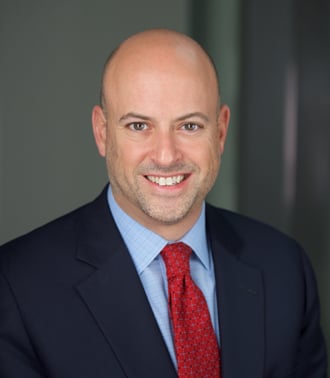Lit Alerts—March 2017
In This Issue:
- Insurance Coverage: Second Circuit Reverses District Court's Ruling That Policy's Indemnity Limit Does Not Cap Insurer's Duty to Reimburse for Legal Defense Costs
- Corporate Governance: Delaware Supreme Court Approves Lower Standard of Judicial Review for Certain Tender-Offer Mergers
- Antitrust: Second Circuit Addresses Presumption of Causation and Partially Revives Actos Lawsuit
Insurance Coverage: Second Circuit Reverses District Court's Ruling That Policy's Indemnity Limit Does Not Cap Insurer's Duty to Reimburse for Legal Defense Costs
Last month, the Second Circuit summarily reversed a district court's ruling that an insurer must pay for legal defense costs far in excess of the insured's liability coverage.
In American Commercial Lines LLC v. Water Quality Insurance Syndicate, Case Nos. 16-91-cv & 16-119-cv, American Commercial Lines (ACL) incurred significant legal defense costs after a barge it owned spilled 300,000 gallons of oil into the Mississippi River. ACL's insurance policy included two important coverage provisions: the first provided $5 million of liability coverage per vessel, and the second provided "costs and expenses . . . for investigation of, or defense against, any liabilities covered under [the first provision]." The policy also provided that "the amounts payable for costs and expenses incurred by [ACL] . . . for investigation of, or defense against, any liabilities covered under [the first provision] shall be in addition to the limits of liability."
A dispute arose as to whether the phrase "in addition to the limits of liability" required the insurer to reimburse ACL for its legal defense costs even after the $5 million indemnity limit had been reached. The district court answered this question in the affirmative and granted partial judgment on the pleadings for ACL. The Second Circuit reversed, holding that while the policy language is ambiguous, a "reasonably intelligent person who has considered the context of the Policy as a whole and who is cognizant of the customs and practices of the trade could conclude that [the insurer's] liability under [the second provision] ceased once the [coverage] limit was reached." That reasonable person could also conclude, the court noted, that the parties did not intend for the insurer to be responsible for paying defense costs that far exceeded the limit on liability.
Corporate Governance: Delaware Supreme Court Approves Lower Standard of Judicial Review for Certain Tender-Offer Mergers
The Delaware Supreme Court recently held that the Business Judgment Rule, rather than the more demanding Revlon standard, applied to a board of directors' decision to approve a merger when a majority of the shareholders of the company being acquired voluntarily tendered their shares in a tender offer by the acquiring company.
In In re Volcano Corporation Stockholder Litigation, a company's board recommended that its shareholders participate in a tender offer without first holding a shareholder vote. By the time the tender offer closed, 89.1 percent of shareholders had sold their shares to the acquiring company. However, multiple shareholders filed suit against the board, alleging that it acted in an uninformed manner when it approved of the merger and that it was motivated by personal benefits stemming from the merger. Seeking dismissal of the claims, the board argued that the Business Judgment Rule applied because the "fully informed, uncoerced, disinterested stockholders approved the Merger by tendering a majority of the Company's outstanding shares in the Tender Offer."
The Delaware Supreme Court held that the Business Judgment Rule applied. Affirming the Chancery Court, the Supreme Court held that a vote of a majority of the shareholders to approve the merger renders the Business Judgment Rule the applicable standard of review, and that a majority of the shareholders participating in a tender offer has the same effect as a vote approving the merger.
This case follows on the heels of two important New York Court decisions (one applying Delaware law) which held that the business judgment rule applied where defendants had taken steps to ensure that the transaction would be fair to minority stockholders. Arnold & Porter Kaye Scholer attorneys represented Baltic Trading Limited and four former independent directors in In re Baltic Trading Stockholder Litigation and Kenneth Cole, Inc. in In re Kenneth Cole Productions Inc. Shareholder Litigation.
Antitrust: Second Circuit Addresses Presumption of Causation and Partially Revives Actos Lawsuit
Last month, the Second Circuit partially revived state law antitrust claims brought by purchasers of the diabetes drug Actos who alleged that its manufacturer, Takeda Pharmaceuticals Co. Ltd., unlawfully delayed generic competition. The plaintiffs originally claimed that false statements made by Takeda to the Food and Drug Administration (FDA) about two patents created a bottleneck that delayed competitors from selling generic versions of Actos, ultimately causing the plaintiffs to pay higher prices for Actos. In September 2015, S.D.N.Y. Judge Ronnie Abrams dismissed the claims, holding that the plaintiff buyers had not plausibly shown that Takeda's actions delayed entry of generic versions of Actos into the market.
In a decision penned by Judge Jed S. Rakoff, sitting by designation, the Second Circuit overturned the dismissal of certain claims. It agreed that the plaintiffs had not sufficiently shown that Takeda delayed market entry for nine generic competitors because the plaintiffs had not plausibly alleged that the generics were aware of Takeda's false statements to the FDA. However, the three-judge panel disagreed with the lower court's decision with respect to a potential generic product from Teva Pharmaceuticals Industries Ltd., which used a different method to seek regulatory approval and was told by the FDA that it should have taken a delayed route based on Takeda's patent descriptions. Because the plaintiffs' theory of causation "as to Teva [did] not require any knowledge of the false patent descriptions . . . [the Second Circuit found] that plaintiffs [had] plausibly alleged that Takeda delayed Teva's market entry."
This decision clarifies that an antitrust plaintiff "may be entitled to a presumption of causation" where "dismissal at [an] early stage on the basis of speculation about possible and not inherently more plausible alternative causes would be premature."




